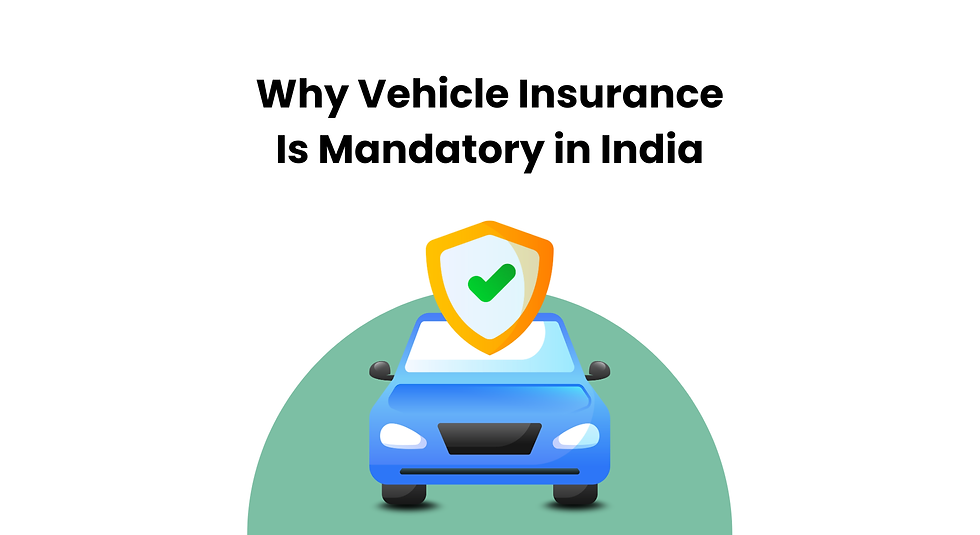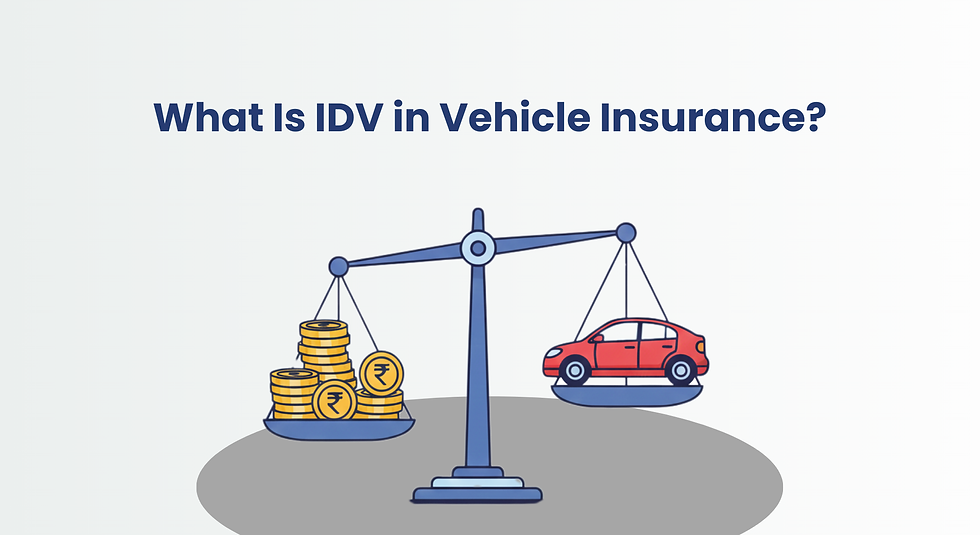Third-Party vs Comprehensive Vehicle Insurance: Which One Is Right for You?
- digital @btwimf.com
- Aug 21
- 2 min read
Updated: Aug 21

Table of Contents
What Is Third-Party Vehicle Insurance?
What Is Comprehensive Vehicle Insurance?
Key Differences Between Third-Party and Comprehensive Insurance
When to Choose Third-Party Insurance
When to Choose Comprehensive Insurance
IRDAI Regulations and Indian Context
FAQs
What Is Third-Party Vehicle Insurance?
Third-party insurance is the minimum insurance coverage mandated by the Motor Vehicles Act, 1988. It protects you against legal liabilities arising from damages caused to:
Another person’s vehicle
Third-party property
Injuries or death of a third party
What Is Comprehensive Vehicle Insurance?
Comprehensive insurance offers wider protection by covering:
Third-party liabilities (like third-party policy)
Damage to your own vehicle due to accident, theft, fire, or natural calamities
Add-on covers (zero depreciation, roadside assistance, engine protection, etc.)
This type of insurance is ideal for people who want complete financial security and peace of mind.
Key Differences Between Third-Party and Comprehensive Insurance
Feature | Third-Party Insurance | Comprehensive Insurance |
Coverage | Only third-party damage & legal liabilities | Own vehicle + third-party + add-ons |
Premium Cost | Low (budget-friendly) | Higher (depends on IDV, add-ons, car model) |
Legal Requirement | Mandatory by law | Optional, but recommended |
Protection for Own Vehicle | Not Covered | Covered |
Add-on Options | No | Yes (zero dep, NCB, roadside assist, etc.) |
When to Choose Third-Party Insurance
If you own an old vehicle with low resale value
If you drive rarely or occasionally
If you want to meet the minimum legal requirement at the lowest premium
When to Choose Comprehensive Insurance
If you own a new or high-value vehicle
If you drive frequently in urban or accident-prone areas
If you want coverage against natural calamities, theft, or fire
If peace of mind and long-term protection matter more than premium cost
IRDAI Regulations and Indian Context
As per IRDAI (Insurance Regulatory and Development Authority of India), third-party insurance is compulsory for all vehicle owners.
Comprehensive plans are optional but strongly encouraged for financial safety.
Insurance premium rates for third-party cover are standardized annually by IRDAI, while comprehensive premiums vary based on Insured Declared Value (IDV) and add-ons.
FAQ's
1. Is third-party insurance enough for my car?
Yes, it is legally enough, but it won’t cover your own vehicle’s damages or theft.
2. Why is comprehensive insurance more expensive?
It includes third-party cover plus protection for your own vehicle and optional add-ons.
3. Can I switch from third-party to comprehensive insurance later?
Yes, you can upgrade at the time of policy renewal.
4. Does comprehensive insurance cover natural disasters?
Yes, it usually covers floods, earthquakes, fire, and other calamities.
5. Is vehicle insurance mandatory in India?
Yes, at least third-party insurance is compulsory under the Motor Vehicles Act, 1988.




Comments